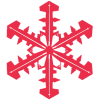ChrisC
Well-known member
Ikon pass. I doubt it but I’ll check.
Did anyone in your group purchase insurance on their lift ticket?
We did discuss IKON passes and Swiss ski resorts last year. @Skieric went to Zermatt on his IKON pass and was worried about medical evacuation insurance: https://www.firsttracksonline.com/boards/threads/europe-23-24.14809/post-90153
There are other responses and mine:
I will be skiing at Zermatt at the end of January on my Ikon pass. It looks like mountain rescue is on ones own dime in Switzerland. When reading it appears insurance is generally sold with day tickets for this reason, however Ikon doesnt have this. The sell “Spot” insurance, however must be US resident for this. (I am in Canada). Has anyone had any experience purchasing a specific insurance to cover any potential mountain rescue in Switzerland. I dont think this kind of peril would be covered by my travel health insurance.
You have to go to a Pass Office at Zermatt (at...
However, IKON seems to only promote its own American insurance product on its website - and has no recommendation/warning about European ski regulations or culture.
I have been buying insurance supplements since at least 2017 at $3 (France/Italy) or $5 per day (Switzerland). I will ask the guides at Andermatt and the Friday group of guided skiers what they do - and what is covered (or not). Off-piste or on-piste? Skiing with a guide/instructor or not? I have not gotten granular on these details.
Also, I have avoided using any Ski Instructors as "guides." I always knew the IFMGA certification was incredibly rigorous. However, the real reason is: I was looking for a guide to ski the Backside of Mont Fort in Verbier (2019) and some other couloirs after new snow. Swiss guides are pricey, so I inquired at some ski schools that talked about freeride experiences. As it turns out, ski instructors are not qualified/covered to lead clients on glaciated terrain. The ski schools specifically told me NO to any Mont Fort off-piste since they are all on glaciers. So after that experience, I only use the local guide office at a ski resort or well-known guide service. Again, glacier skiing is very common at the summits of Engelberg, Andermatt, Verbier, Chamonix, Courmayeur, Tignes, and others. I have assumed ski instructor training is less stringent.
The International Federation of Mountain Guides Associations (IFMGA) certification is the highest level of qualification for mountain guides worldwide, including ski guiding. In Europe, the process to become an IFMGA-certified ski guide is rigorous and comprehensive, typically taking 5-10 years to complete12.
Certification Process
The IFMGA certification process in Europe consists of several key components:Prerequisites
Before beginning the formal training, aspiring guides must have extensive personal experience, including:- A minimum of 25 ski tours, each with at least 1000 meters of ascent
- At least 10 tours on glacier terrain with 1400 meters of elevation gain4
Training and Assessment
The European IFMGA training program is divided into several stages:- Entry Test: Candidates must pass an initial assessment of their skills and experience4.
- Training Modules: The program includes courses in various disciplines, such as:
- Practical Learning: Candidates must complete supervised practical learning with experienced IFMGA guides5.
- Examinations: Throughout the program, candidates are assessed on both technical skills and theoretical knowledge5.
Final Certification
Upon successful completion of all training modules and examinations, candidates receive their IFMGA diploma and pin, becoming fully qualified IFMGA Guides45.European Specifics
In European alpine countries, the IFMGA certification process is often more streamlined and can be less expensive than in other regions, such as the United States1. The training is typically full-time and takes about 4-5 years to complete12.Some key aspects of the European system include:- Competitive application process
- Structured, full-time training program
- Focus on all three disciplines: ski, rock, and alpine1
Importance of IFMGA Certification
IFMGA certification is crucial for ski guides in Europe because:- It is often a legal requirement to guide professionally in the Alps13.
- It allows guides to work in any mountain range, even those they are not familiar with2.
- It represents the highest level of training and competence in the profession6.
Last edited:


